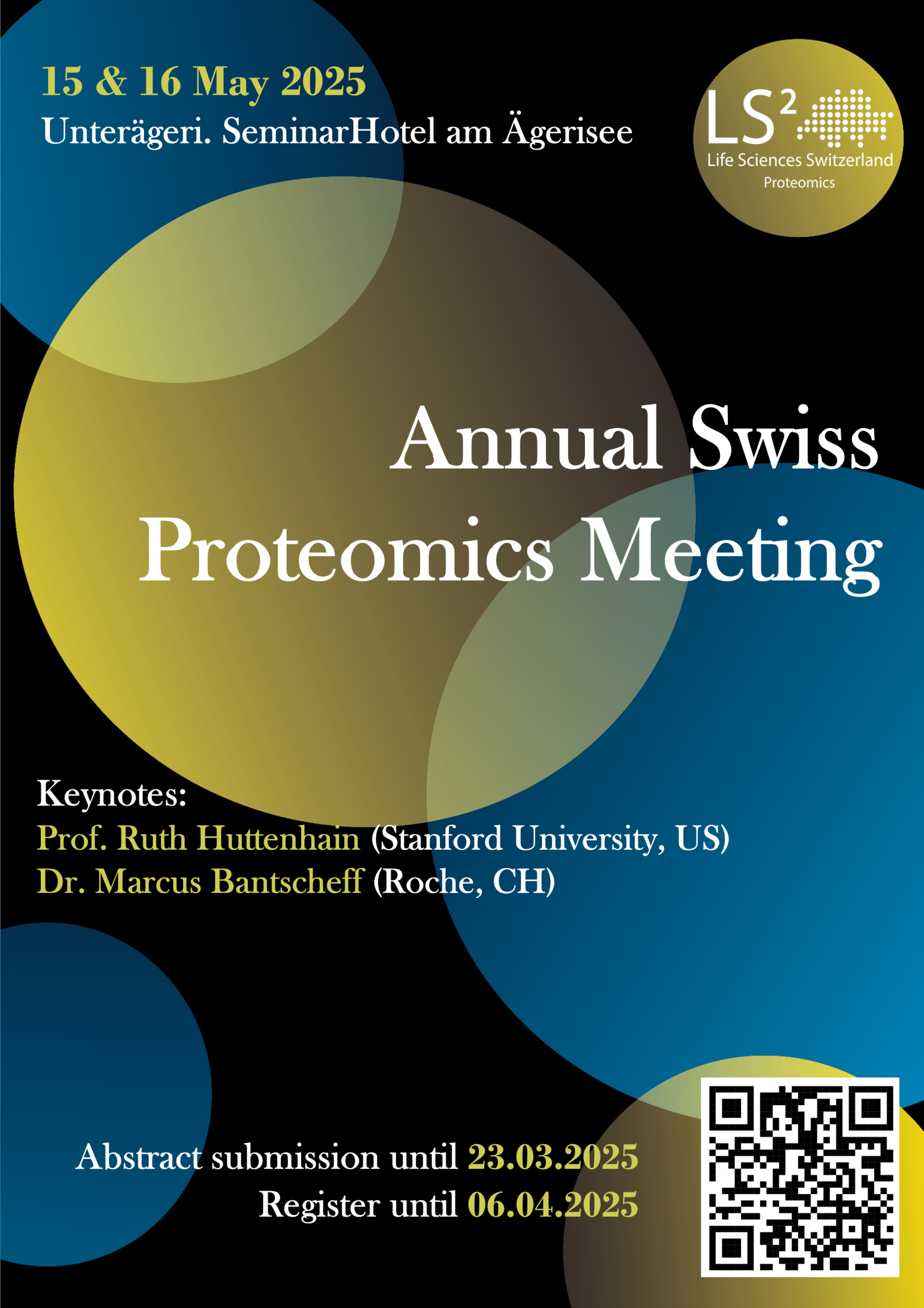Keynotes:
Prof. Ruth Huttenhain (Stanford University, US)

Title of the talk: Exploring non-canonical GPCR interactions using unbiased proteomics
Ruth obtained a pharmacy degree from the University of Bonn and a PhD from ETH Zurich, Switzerland, where she developed high-throughput, large-scale targeted mass spectrometric approaches. During her postdoc at UCSF, Ruth extended her expertise in quantitative mass spectrometry to study dynamics of interaction networks. She pioneered a proximity labeling-mass spectrometry approach that simultaneously captures the precise temporal remodeling and spatial organization of proximal protein networks with a focus on G protein-coupled receptors (GPCRs). Ruth’s group at Stanford deciphers how GPCRs decode extracellular cues into dynamic and context-specific cellular signaling networks to elicit diverse physiologic responses. She exploits quantitative proteomics to capture the spatiotemporal organization of signaling networks combined with functional genomics to study their impact on physiology.
Dr. Marcus Bantscheff (Hoffmann-La Roche Ltd, CH)

Marcus Bantscheff graduated in Chemistry at the University of Konstanz and obtained his PhD degree from the University of Rostock working with Prof. Glocker on structure-function correlation of bacterial response regulator proteins utilizing mass spectrometric and protein chemistry methods. As a postdoctoral fellow at the Proteome Center in Rostock, Marcus was involved in setting up a proteomics unit and focused on the analysis of synovial fluids and tissue samples derived from rheumatoid arthritis patients and CIA mice. At Cellzome since 2002 he led the proteomics team, and joined GSK upon Cellzome’s acquisition in 2012 where he currently serves as Senior Scientific Director and Senior Fellow leading the proteomics/metabolomics platforms within Functional Genomics Department. Marcus’ work focuses on the development and application of proteomics and chemical biology approaches to characterize targets, disease mechanisms and mechanism-of-action of bioactive molecules. He is an inventor on several patents including Cellzome’s Kinobeads™ technology, has co-authored more than 80 publications (h-index 54, Google Scholar), and serves as a reviewer for reputed journals and funding bodies. His research awards include the Life Science price of the German Society for Mass Spectrometry, in 2016 and the MCP Lectureship, in 2019. Since 2024, he has been the Head of the Proteomics and Metabolomics 360 Lab at Roche.
Title of the talk: The Emerging Role of Proteomics for Elucidating Target and Drug Mechanisms in Early Drug Discovery
In this presentation, an overview of recent advancements in (chemo-)proteomics technologies and their application to questions relevant for drug discovery, such as target identification and validation, understanding chemical tractability and druggability, as well as the identification of potential safety hazards, will be provided. The presentation will highlight recent trends and innovations in drug discovery where proteomics provides unique insights, such as targeted protein degradation and covalent strategies to expand chemogenomic space.
